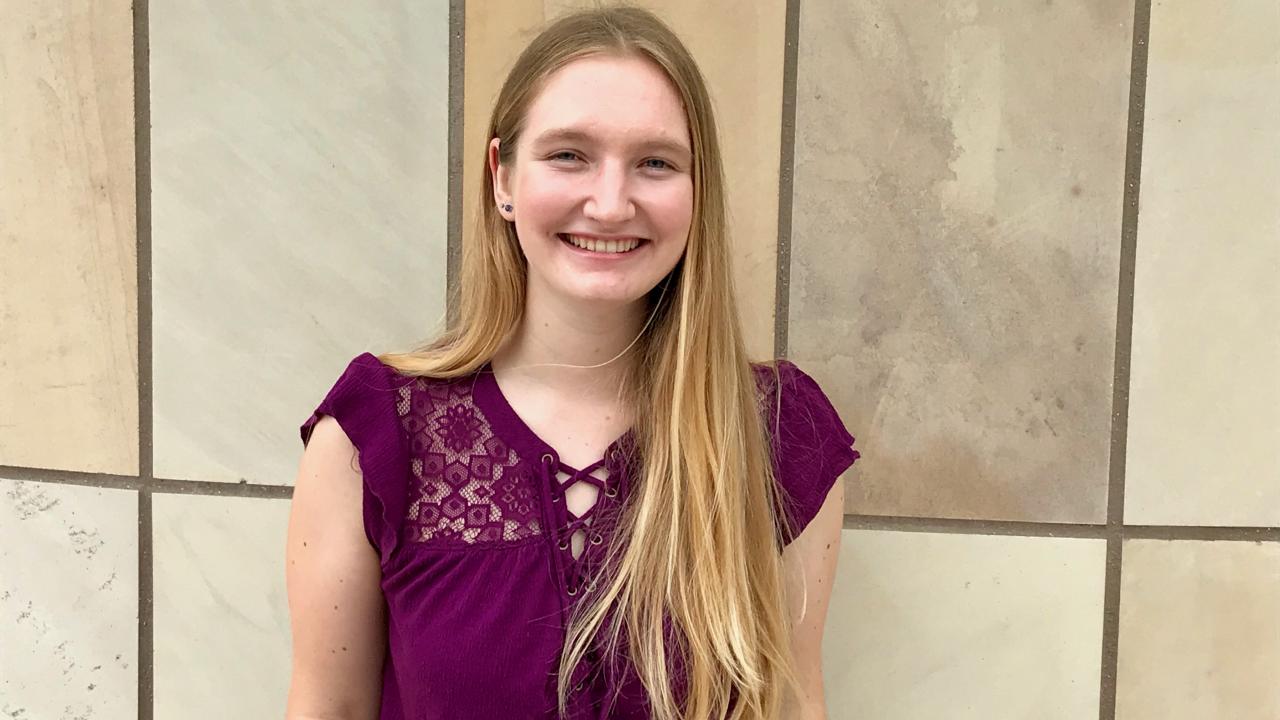
Global Education to Protect Our Future
Anna Maddison ’22 driven to inspire change by building global awareness
By Trevor Stewart
The next generation of problem solvers is ready to make an impact. They carry with them essential tools for enacting change, such as digital savvy and social awareness, and at UC Davis they are cultivating global perspective as well.
The Global Education for All Big Idea aims to strengthen that impact by involving all UC Davis students in global learning experiences –– at home and abroad –– within every college, school and unit.
Take environmental toxicology: a multidisciplinary field of science concerned with the study of the harmful effects of various chemical, biological and physical agents on living organisms. This topic is something communities all over the world deal with –– in many different ways –– and Anna Maddison ’22 is looking forward to learning more about global systems shaping the subject during her study abroad quarter in Nottingham, England, this fall.
“It will be really cool to see how different countries do things because I've learned a lot about food and environmental regulations in Europe and how they're very different than the U.S.,” she said. “It would be a historical approach to studying. The Industrial Revolution began in Europe and, more recently, a lot of the environmental reforms have originated there as well.”
Maddison decided to major in environmental toxicology after making a personal and painful connection between toxins and her family.
A CNN article and a subsequent ESPN documentary titled “Turf Wars," covered the topic of using old tires to create fake turf for soccer fields and playgrounds for children. The documentary hypothesized that soccer goalies were at an increased risk of cancer due to contact with the recycled tire crumbs used to create the turf fields.
According to a Washington State Department of Health and researchers at the University of Washington School of Public Health study, among a list of 53 players who had been diagnosed with cancer, more than 60% of those players were goalkeepers.
Unfortunately, Maddison saw this theory play out firsthand, as her close family member who was a youth soccer goalie, was diagnosed with cancer.
Maddison wondered how companies were allowed to move forward with the construction of these fields if these tires were deemed too hazardous for landfills and had to be laid by workers wearing full hazmat suits.
“I was pretty shocked, because I didn't think that that was something that these companies could do,” Maddison said. “But if there are not enough studies proving harmful results, then they can just continue to claim there’s no proof –– that's when I learned about the importance of environmental toxicology.”
Nancy Erbstein, associate vice provost of Global Education for All in Global Affairs, sees the outcomes of global experiences –– whether near or far –– as invaluable for students as they develop skills needed to effect positive change.
“In our highly interconnected and interdependent world, our graduates will have to collaborate effectively with a diversity of people, with an awareness of global systems, in order to address the complex challenges of our time,” said Erbstein.
Gaining a global perspective
Maddison was encouraged pursue her academic interests abroad by her mother, who worked for a brief time in Europe. She recalls her mother speaking highly of the experience and the chance to learn in other countries–– something she is looking forward to as well.
Maddison’s global learning outcomes are to build a network with fellow peers and professors around the world who she will be working with and broaden her knowledge of how the rest of the world studies and researches environmental science subjects.
“It's very important to be aware of issues that are going on globally,” said Maddison. “I feel like you have to have the bigger picture to understand, because environmental science is a world issue.”
Maddison believes adopting a global lens is vital to UC Davis students, whether they have the opportunity to study abroad or participate in global learning in any number of other ways on campus or in Sacramento region communities.
“I think it's very important to see different perspectives,” she said. “By doing that, we can learn about each other’s beliefs and convictions and take steps toward working more collaboratively across the globe on these huge issues that are affecting all of us.”
